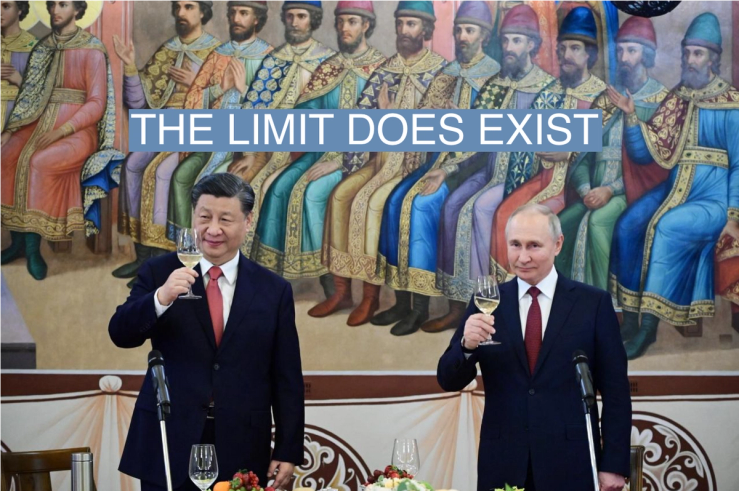The News
Russian President Vladimir Putin and Chinese leader Xi Jinping concluded their three-day meeting in Moscow by publishing a joint statement reaffirming the two countries’ deepening ties and “strategic partnership.”
The two leaders did not, however, describe their friendship to be of “no limits” — a phrase used in the last joint statement they issued prior to the war in Ukraine on Feb. 4, 2022, and which has underpinned much of the Western analysis of Chinese support for Russia since.
Know More
The omission points to the guardrails that still exist between Beijing and Moscow, despite otherwise effusive — if vague — statements of friendship.
In the statements released by each country’s foreign ministry, the leaders shared that advancement in the energy sector was a notable priority, as Russia becomes more reliant on China as an import market. The two countries also said they would work to promote research and development into a “new China-Mongolia-Russia natural gas pipeline.”
Xi and Putin expressed mutual support in standing up against Western alliances such as NATO, saying that they will develop “mutual military trust” to oppose “forces undermining regional peace and stability.”
Moscow and Beijing remained vague in proposing resolutions for the war in Ukraine — only saying actions that “increased tensions” and prolonged the war needed to stop.
But instead of having a “no limits” partnership, they opted for terms like “strategic partner” and “mutually beneficial cooperation” in the most recent statement.
Step Back
According to Temur Umarov, a fellow at the Carnegie Endowment specializing in Central Asia, the two leaders have “obvious contradictions in their priorities,” particularly on the conflict in Ukraine, as Beijing continues to withhold a full, public show of support for Moscow.
“The fact that they are calling their pact a ‘friendship’ and not an ‘alliance,’ shows that limits exist, but they would never outwardly say it,” Umarov said.
Speaking to Semafor, Maria Repnikova, who analyzes Chinese and Russian political discourse, meanwhile said that the joint statements showed “a degree of growing asymmetry in power,” with Russia seemingly more dependent on China than vice-versa.
“Putin’s statements are more definitive and more profusely optimistic than Xi’s statements,” she said. “For instance, Putin noted that China-Russia relations are at the highest point in their entire history, whereas Xi noted that China-Russia relations hold very important meaning for the contemporary world order.”
Notable
- Putin has not shied away from acknowledging that Beijing has been an economic lifeline to Moscow since the war in Ukraine — with bilateral trade reaching a record of $190bn in 2022, according to the Financial Times. It’s what analysts say makes Russia a “junior partner” in the relationship.


